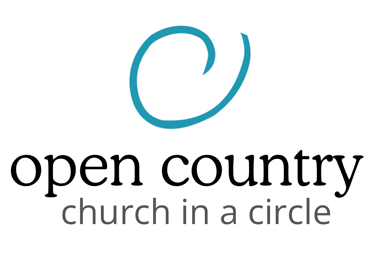Transitioning to the Future of Church (Part 1)
How to transition to micro expressions of church as an existing church pastor. The Australian Church is having trouble adapting to doing things differently. How can a legacy church adapt without losing the existing congregation?
The Church in Australia, and across the Western World, is needing to change. Yet, a map doesn't exist, the current model of church has been in existence for centuries. While the music may have changed, the sitting in rows and listening to a minister preach is still the way we choose to meet. This is not really church though, just one expression of it that we have given prominence. So much so, we talk about going to church as meaning, going to a service where we'll sing worship, listen to a message and perhaps catch up for some small talk afterwards.
Church has always been about much more. Church, more accurately, is with us wherever we go, as we go about our lives and interact with other Christ followers along the way. It's coffee with a friend, devotions with your family, sharing Jesus with a neighbour and praying for someone at the shops. Yet church does involve the intentional meeting together. The question to be explored is how we meet, because the current way we've been meeting is connecting less and less.
Today we see two ways the weekend service has moved, as churches have tried to maintain relevance. On one side of the equation, we have mega churches and on the other, micro churches. One seeks to dazzle you with a concert like performance, the other, develop deep, raw community. There are issues with both extremes. The mega church faces well publicised issues of leadership scandals, political divides, mirage community and a lack of spiritual depth. On the other hand, micro churches are unstable, don't tend to endure long enough to make a difference and can lack clear direction. These issues are related to their inherent structure and though these can be overcome, leaders will always be working to find way around these problems.
One thing is clear. Something needs to change. For the many congregations who find themselves in between the two extremes of mega and micro, their numbers are dwindling, aging and slowly disappearing. Those leading these local churches may feel the need to change but feel trapped in their current model. At best, they may and adapt elements of micro, or more commonly, mega churches, such as live-streaming, improved music, lighting and a next steps desk, amongst other things. This proves ineffective, because there's a church that does it better down the road. If we're trying compete on superficial elements like this, we're missing the point anyway.
The way forward is to go back to what church is at its core. We must be willing to let go of the constraints we have placed over church, like paid staff, buildings and programs. Get a small group of your people together and write down what is essential. Ask what God has called your group to do in your place. For too long we have copied what works somewhere else, in another part of the world. Then begin to imagine with freedom what could be. Scribble it all down around the outside of what you put down first at the centre. All these ideas are options and should be lightly held. If they gain traction, they'll be for a season. We cannot allow periphery issues to become too important or embedded, no matter how long we've been doing them or how commonplace they may be.
Rather than looking for a map, a route set out by some prominent church across the ocean, we must trust God that he has given our small community all we need to reach those in the city or town he has placed us. We should emphasise conversation and relationships over programs and strategies. Some will have great ideas, but they will not be the solution to all our problems. One way is not better than another, it just might work better in our context, for this season.
One thing is for sure, we can no longer rely on a model where a small number of leaders are paid to do all the work. The way forward must involve all who are willing. We must rediscover the variety of gifts Jesus has given the church, designed so that we would not have one person with all the answers. Apostles, prophets, evangelists, pastors and teachers must perform their roles in collaboration with everyone, as people chosen by God to equip his people. Most of all, we must rely on the Holy Spirit, being people of prayer and obedience. When our ways are failing, we find ourselves drawn back to Him, and discover that our current struggles may be a necessity to embrace.
